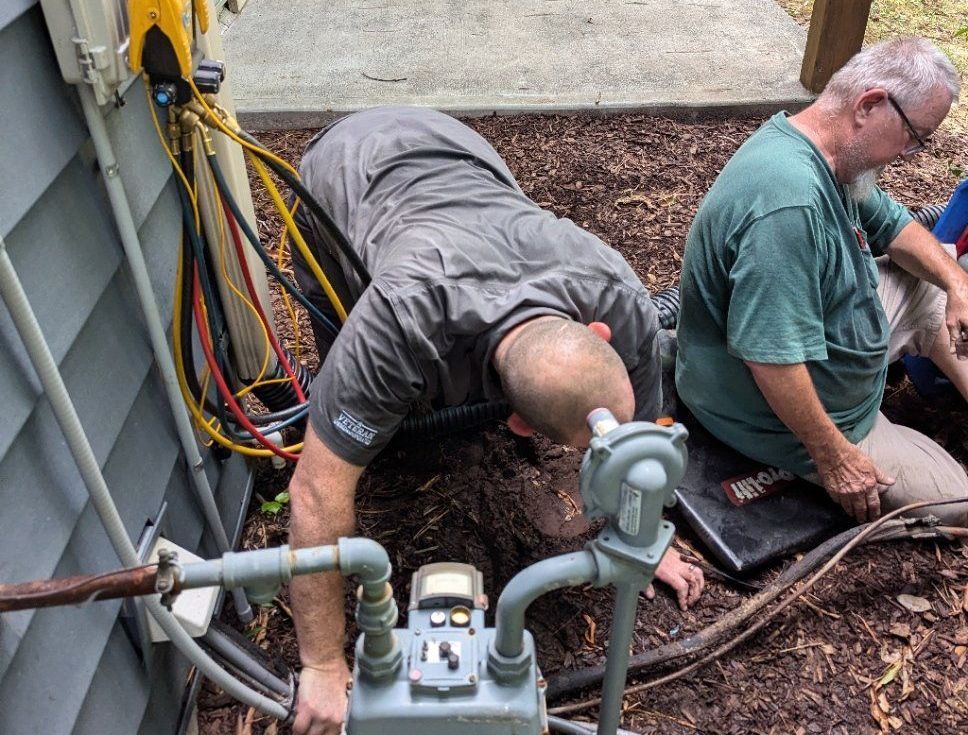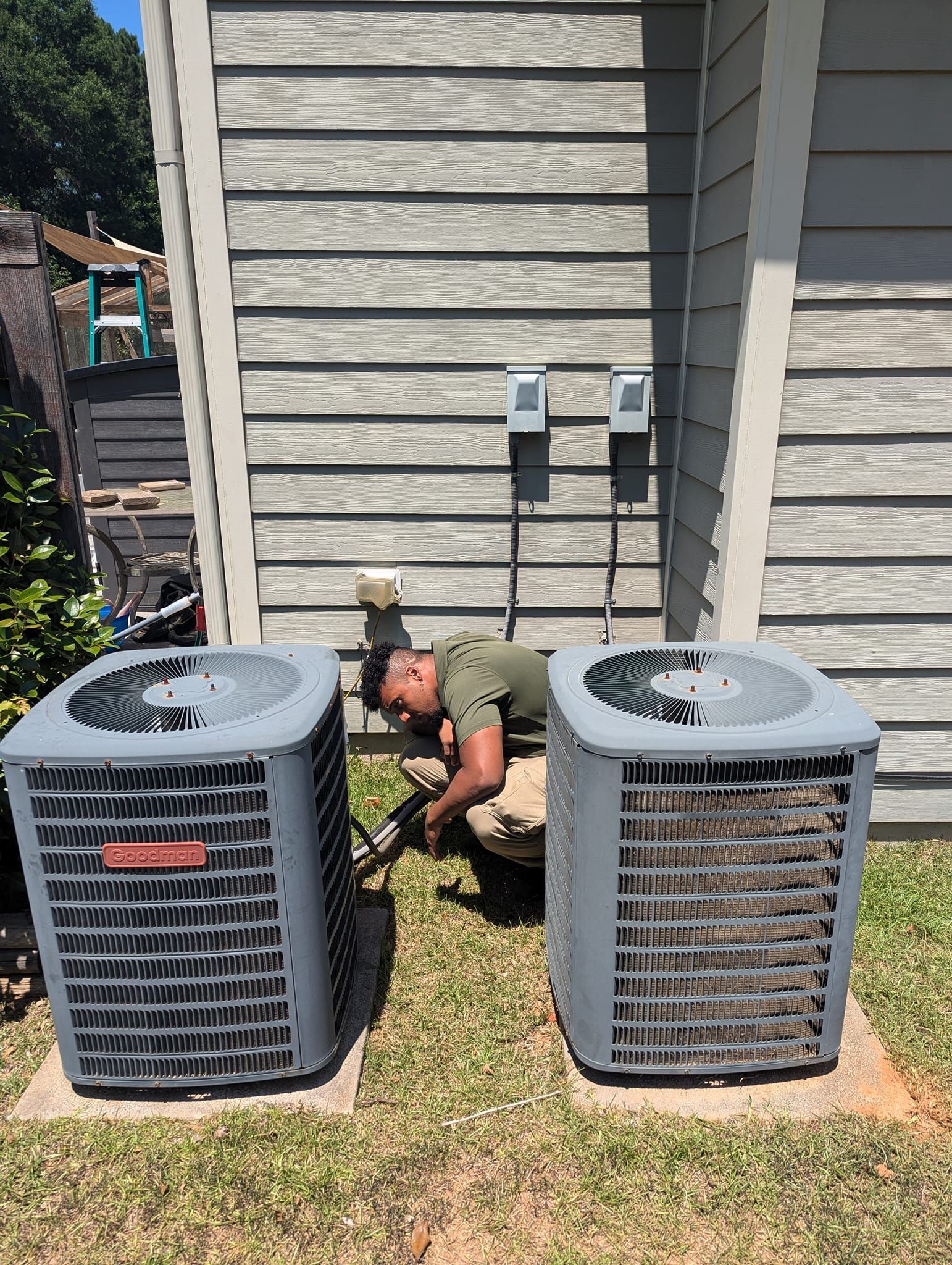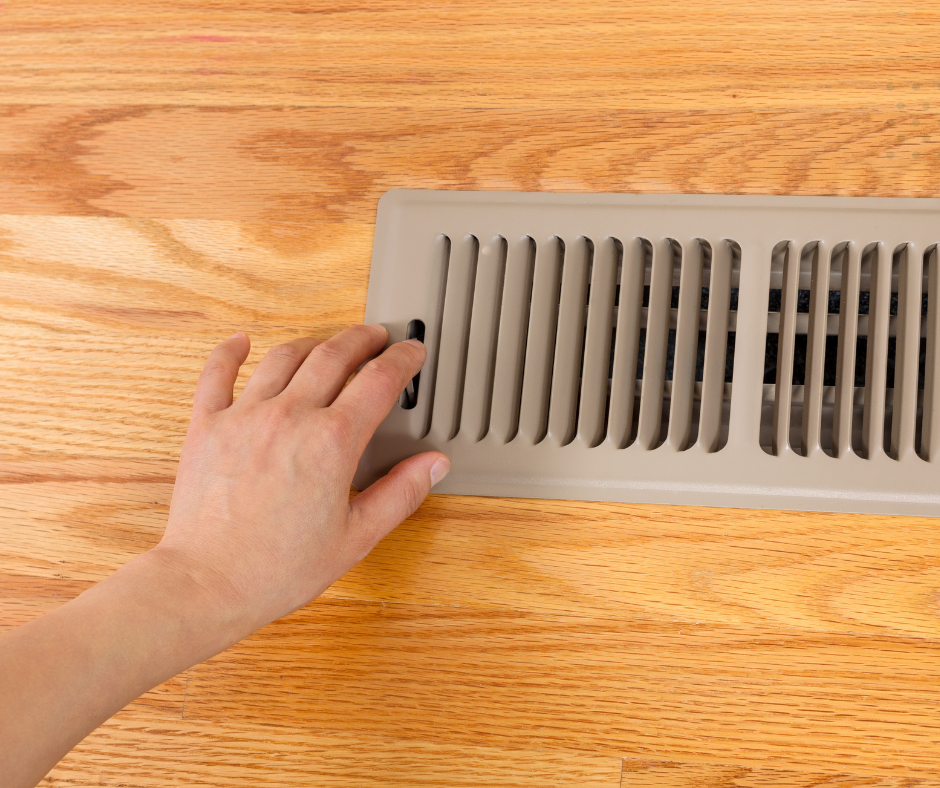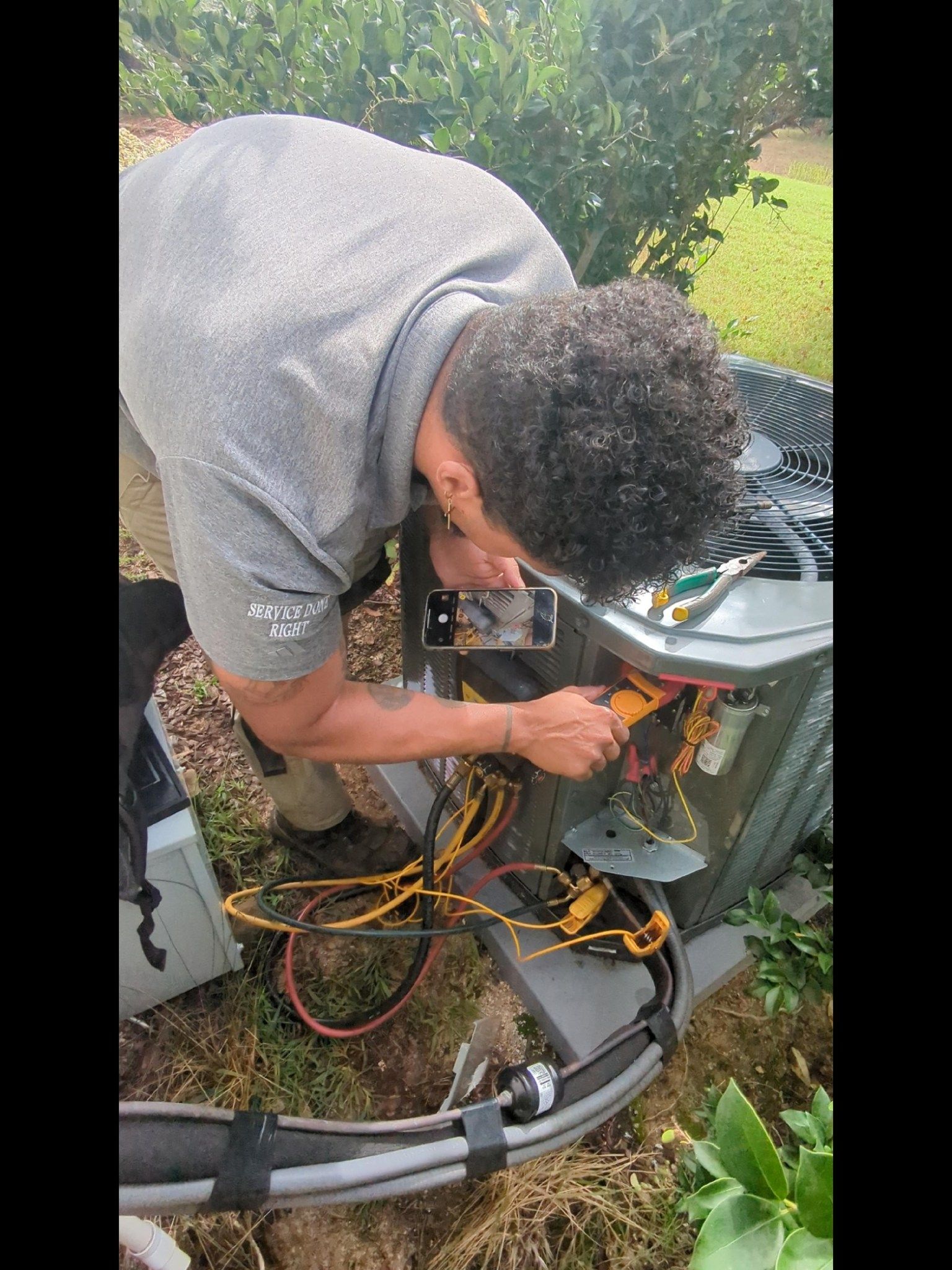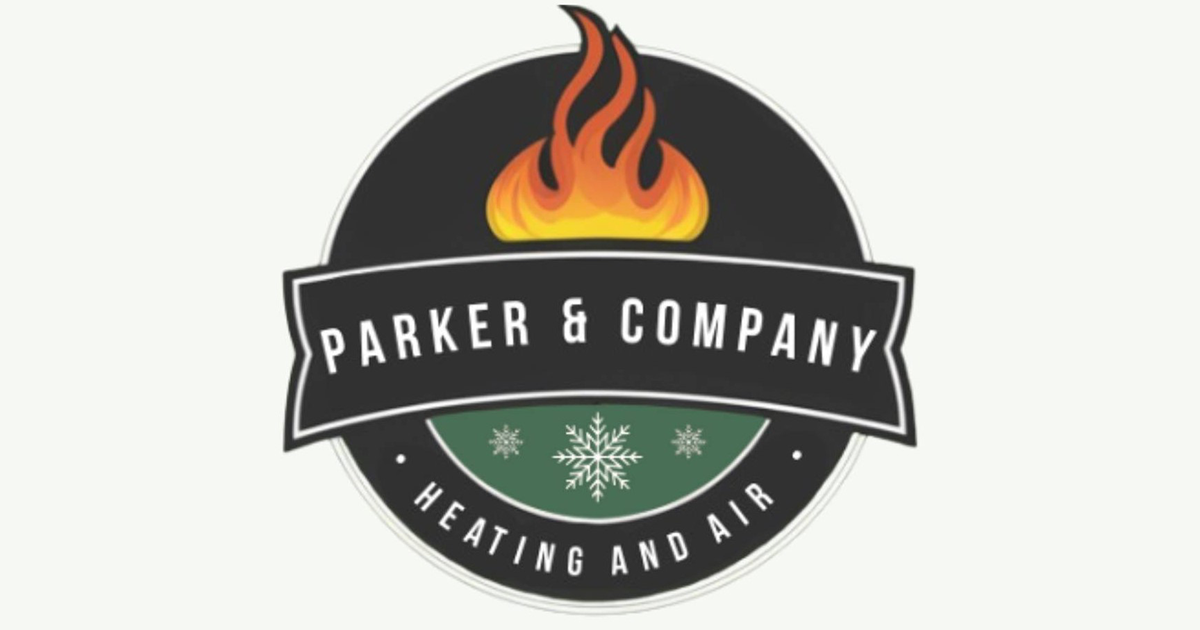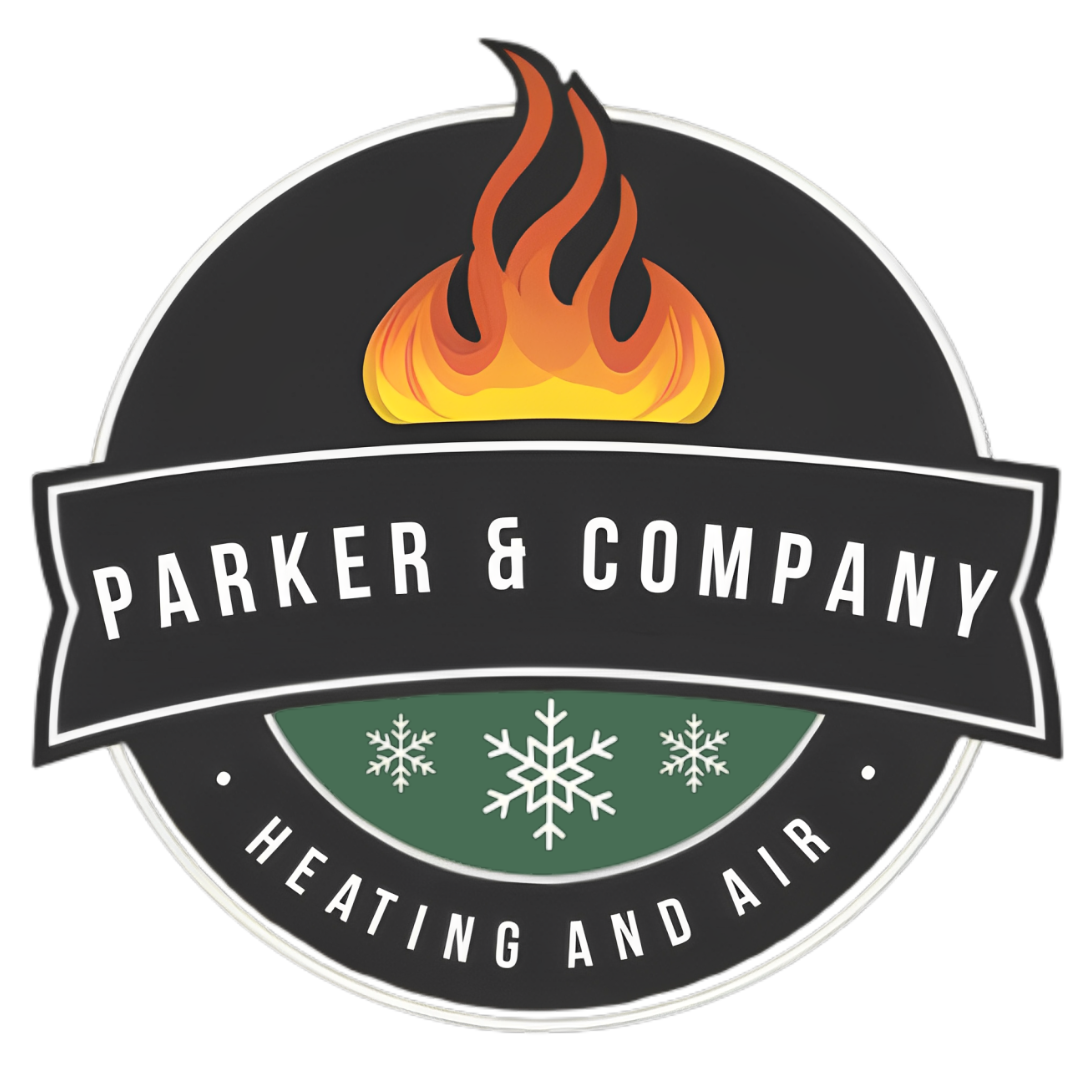Is HVAC a Hard Career in North Carolina? Here’s What You Need to Know! - Parker and Company Heating and Air, LLC
If you're considering a career in HVAC (heating, ventilation, and air conditioning) in North Carolina, you're likely wondering whether it’s a challenging field to get into and thrive in. The answer depends on various factors, from your skills and training to the demand for HVAC professionals in the area. In this blog post, we’ll break down what you need to know about pursuing an HVAC career in North Carolina and whether it's the right path for you.

1. Understanding the HVAC Industry in North Carolina
North Carolina has a growing demand for skilled tradespeople, especially in HVAC. The state experiences a variety of temperatures throughout the year, with hot summers and chilly winters. As a result, HVAC systems are essential for homeowners and businesses alike. Whether it’s maintaining air conditioning units in the summer or ensuring heating systems work efficiently during winter, the demand for HVAC professionals is expected to remain strong.
According to the U.S. Bureau of Labor Statistics, the demand for HVAC technicians is projected to grow by 5% from 2021 to 2031, which is about as fast as the average for other occupations. This growth is primarily driven by the increasing need for energy-efficient systems and environmental concerns.
2. The Challenges of an HVAC Career
While a career in HVAC can be rewarding, it does come with its challenges. Here are some of the obstacles that HVAC technicians in North Carolina may face:
1. Physical Demands
HVAC technicians work in a variety of environments, from residential homes to commercial properties. The job often requires bending, lifting heavy equipment, and working in tight or uncomfortable spaces. On top of that, HVAC professionals sometimes have to work in extreme temperatures—whether it’s fixing a broken air conditioning unit in the middle of a summer heatwave or repairing a furnace during a chilly winter night.
2. Technological Complexity
HVAC systems have become more advanced over the years, incorporating smart technology and energy-efficient components. Staying up-to-date with the latest tools, technologies, and energy codes can be a challenge, but it's essential for technicians to remain competitive in the field. Constant learning and certifications will be key to your success.
3. Seasonal Workload
The HVAC industry can be seasonal in nature. In the hotter months, there may be a higher demand for air conditioning repairs and installations, while the winter months may be focused on heating services. While this allows HVAC technicians to have periods of high demand, it also means there can be slower periods where work is less abundant. For those just starting out, it’s important to be prepared for these fluctuations.
3. Is HVAC a Hard Career in North Carolina?
The difficulty of an HVAC career in North Carolina largely depends on your background, training, and willingness to keep learning. Here are some things to consider:
1. Education and Training
While an HVAC career does require specialized training, it’s not as extensive as some other technical fields. Most technicians in North Carolina complete a formal education program at a technical school or community college, which typically lasts from six months to two years. You can also pursue apprenticeships, which allow you to earn while you learn under the guidance of an experienced HVAC professional. The more education you have, the more prepared you’ll be for the challenges the job presents.
2. Certifications
To work in HVAC in North Carolina, technicians are required to obtain certain licenses and certifications, such as the North Carolina HVACR license. Many HVAC professionals also earn certifications through organizations like the North American Technician Excellence (NATE) or the Refrigeration Service Engineers Society (RSES). These certifications not only validate your skills but also enhance your marketability to employers and clients.
3. Job Opportunities
North Carolina’s growing population, especially in cities like Raleigh, Charlotte, and Durham, means there's a continuous demand for skilled HVAC technicians. Whether you work for an established HVAC company or start your own business, job opportunities are abundant in the state. Plus, with ongoing technological advancements, professionals who stay current with the latest trends and developments will always have room to grow in their careers.
4. How to Succeed in HVAC in North Carolina
1. Gain Practical Experience
While formal education is important, hands-on experience is essential to becoming proficient in the HVAC industry. Work with experienced technicians through apprenticeships, internships, or on-the-job training to build your skillset. The more time you spend learning how to handle different systems and troubleshoot issues, the more confident you’ll be when you encounter complex situations.
2. Stay Updated on Industry Trends
The HVAC industry is always evolving with new technology, energy-efficient systems, and regulations. Make sure you stay informed about the latest innovations, energy codes, and best practices in the field. Joining professional organizations like NATE or RSES can provide valuable resources, networking opportunities, and training programs.
3. Be Prepared for the Physical Demands
As an HVAC technician, you’ll need to be physically fit and capable of performing labor-intensive tasks. Regular exercise and maintaining a healthy lifestyle can help you cope with the physical challenges of the job. Understanding your limits and knowing when to ask for help is important in avoiding injury.
4. Focus on Customer Service
Being an excellent HVAC technician isn't just about technical expertise; it’s also about providing exceptional customer service. Your clients are depending on you to keep their homes or businesses comfortable. Having a professional demeanor, clear communication skills, and a helpful attitude will ensure that you’re building a strong reputation in the industry.
5. Conclusion
So, is HVAC a hard career in North Carolina? Like any career, it has its challenges, but it’s also full of opportunities for those who are dedicated to learning and growing. With the right education, certifications, and a passion for the work, you can build a successful and rewarding career in HVAC. North Carolina offers a thriving job market for HVAC professionals, and the demand is only expected to grow in the coming years.
If you're considering pursuing an HVAC career in North Carolina, remember that Parker and Company Heating and Air is here to help. Whether you're just starting your career or need expert advice on your HVAC system, our team of professionals is ready to provide you with top-notch services. Contact us today to learn more!
Contact Parker and Company Heating and Air, LLC


